One of the most common questions we receive from future au pairs and international applicants is:
“Is it legal to be an au pair in China?”
The short answer is: Yes, it’s legal—as long as you meet the visa requirements and follow the correct application process.
Because the topic involves important immigration rules, visa types, and cultural exchange program regulations, we’ve created this page to guide you through everything you need to know.
We’ll walk you through the legal status of au pairing in China, which visa you need to apply for, how to travel safely and legally, and how to avoid the common mistakes that could put your visa status or residence permit at risk.
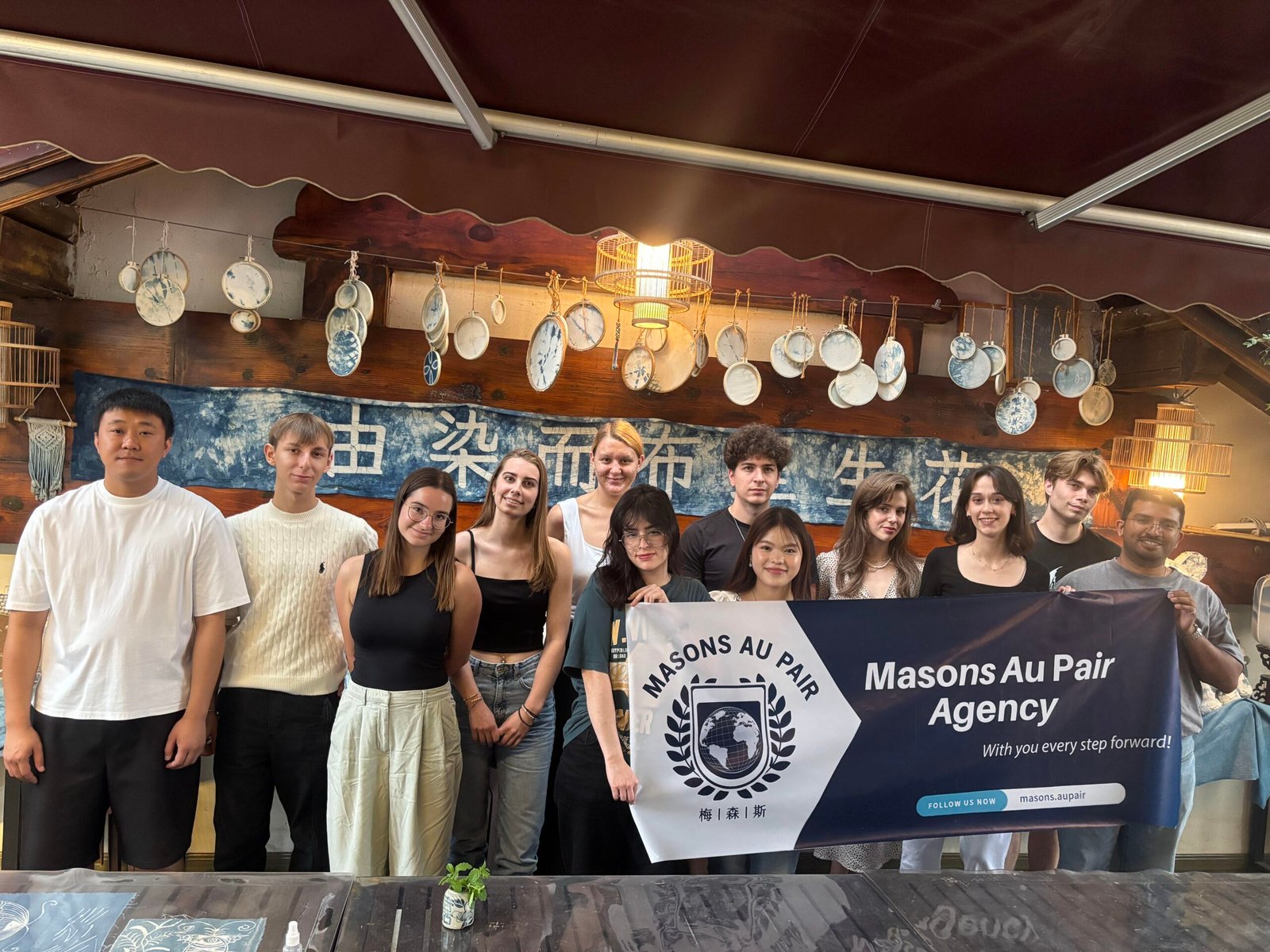
A Young Program in a Growing Market
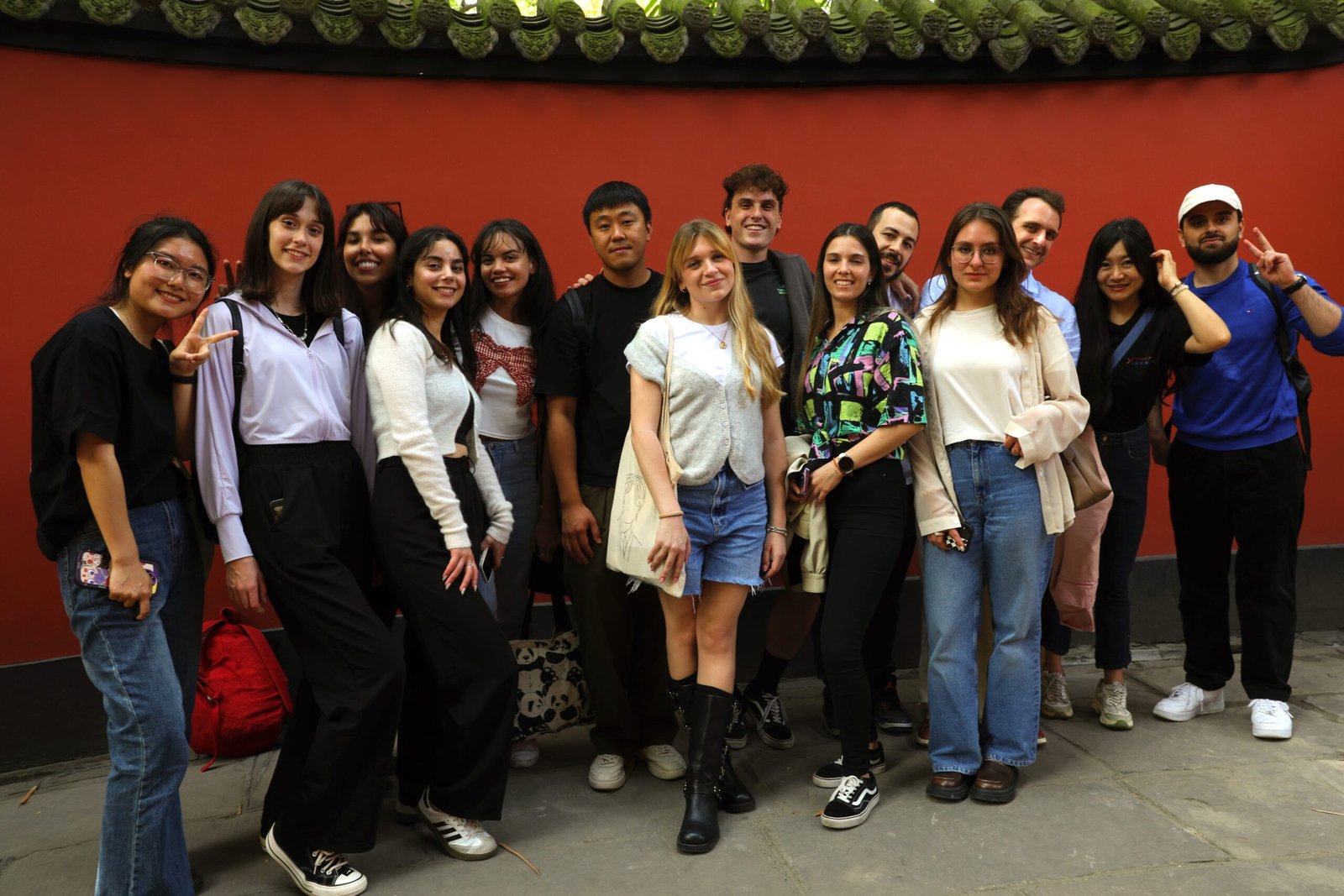
Compared to many European countries, China’s au pair program is still relatively new and developing.
Because of this, the Chinese government has not yet established a specific visa category exclusively for au pairs.
This contrasts with countries like France, Germany, or other parts of the Schengen area, where applicants can directly apply for an “au pair visa” through the embassy or consulate.
So, what visa types are available for foreign nationals who want to travel to China as an au pair?
Let’s take a closer look at the most commonly used visa options, and what each one means for your application process and legal stay.
🛂 Option 1: The F Visa
The F visa is a short-term nonimmigrant visa designed for non-commercial visits to China. It is commonly used for activities such as cultural exchange programs, study tours, and academic research.
In the context of au pairing, many foreign nationals and international students use the F visa to participate in language and cultural immersion experiences that do not involve formal employment or paid work.
The maximum duration of stay with an F visa is typically 90 days per entry, making it suitable for short stays or temporary exchange programs. However, this visa is not ideal for long-term arrangements, as it usually cannot be extended beyond the initial period. In most cases, applicants must exit and re-enter China to renew their visa, which adds complexity to the application process and may affect your travel plans.
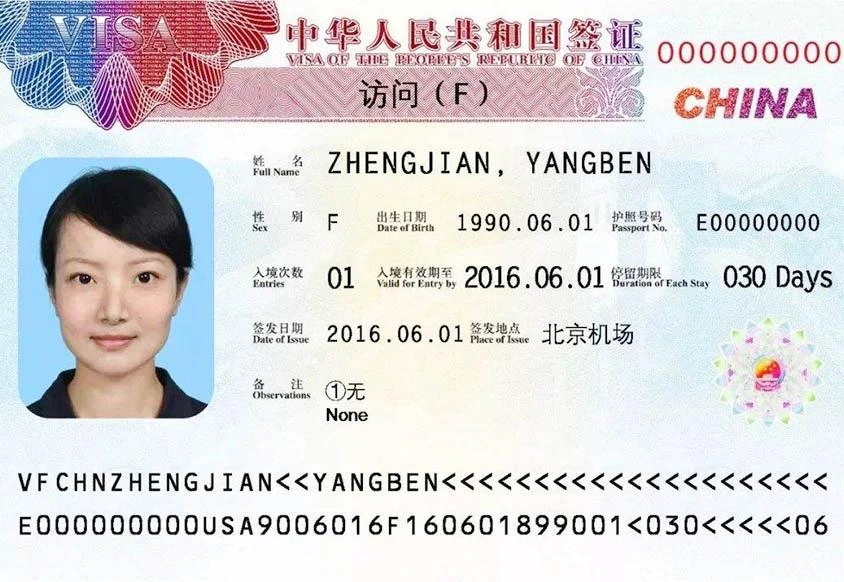

The F visa is a short-term nonimmigrant visa designed for non-commercial visits to China. It is commonly used for activities such as cultural exchange programs, study tours, and academic research.
In the context of au pairing, many foreign nationals and international students use the F visa to participate in language and cultural immersion experiences that do not involve formal employment or paid work.
The maximum duration of stay with an F visa is typically 90 days per entry, making it suitable for short stays or temporary exchange programs. However, this visa is not ideal for long-term arrangements, as it usually cannot be extended beyond the initial period. In most cases, applicants must exit and re-enter China to renew their visa, which adds complexity to the application process and may affect your travel plans.
🎓 Option 2: The X Visa (Student Visa)
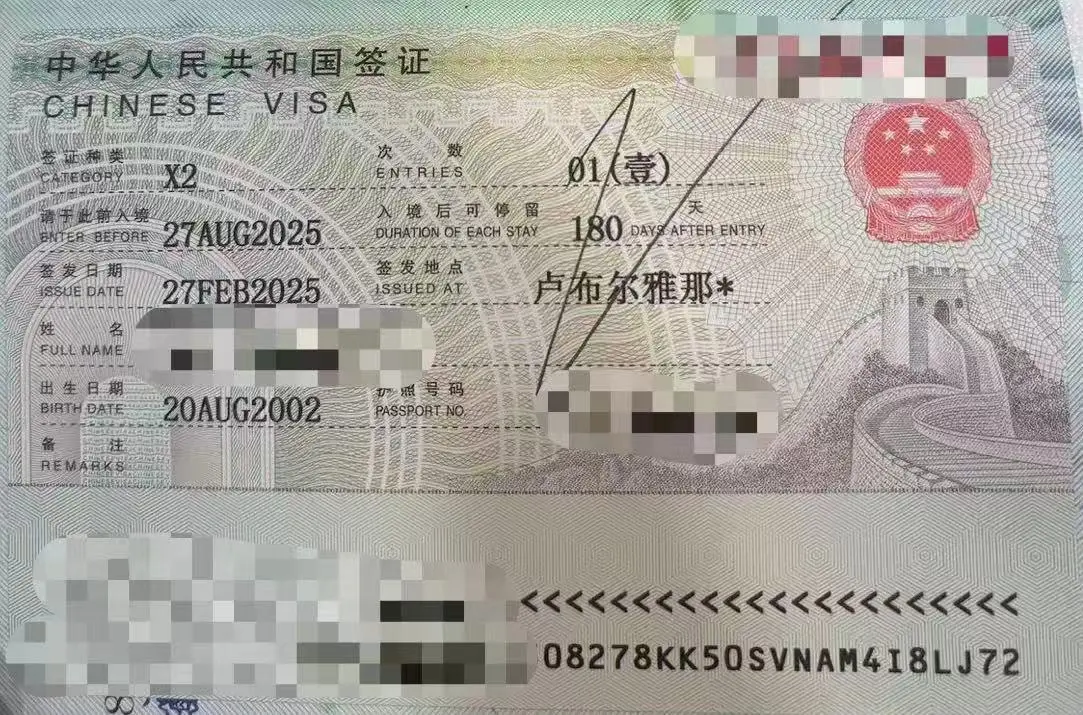
“Foreigners holding student visas are allowed to take part-time jobs or internships in China, with the approval of their schools and relevant authorities.”
The “Illegal Work” Concern: What You Need to Know
✅ It comes down to two main factors:
Your work schedule and duties
- You’ll work about 30–35 hours per week
- Your main responsibility is to provide a language environment for the children, such as chatting, reading, or playing together
- You are not required to do housework like cooking or cleaning
Your compensation
Why Is China So Strict About Foreign Workers?
A bit of background helps here.
Before 2020, it was relatively easy for foreign nationals to obtain a work visa in China. However, this ease of access also opened the door to individuals with incomplete documentation or even criminal backgrounds.
One widely reported case involved a kindergarten teacher who was later discovered to have a criminal record in his home country—raising serious concerns about screening processes and visa control.
In response, the Chinese government tightened its visa regulations and began enforcing stricter rules against illegal employment and misuse of work and travel programs.
But here’s the good news: when done correctly through a registered program, au pair placements are not affected by these crackdowns.
They fall under the umbrella of cultural exchange and education, not formal employment—making them a legal and supported pathway for young people to experience China while contributing to a host family.
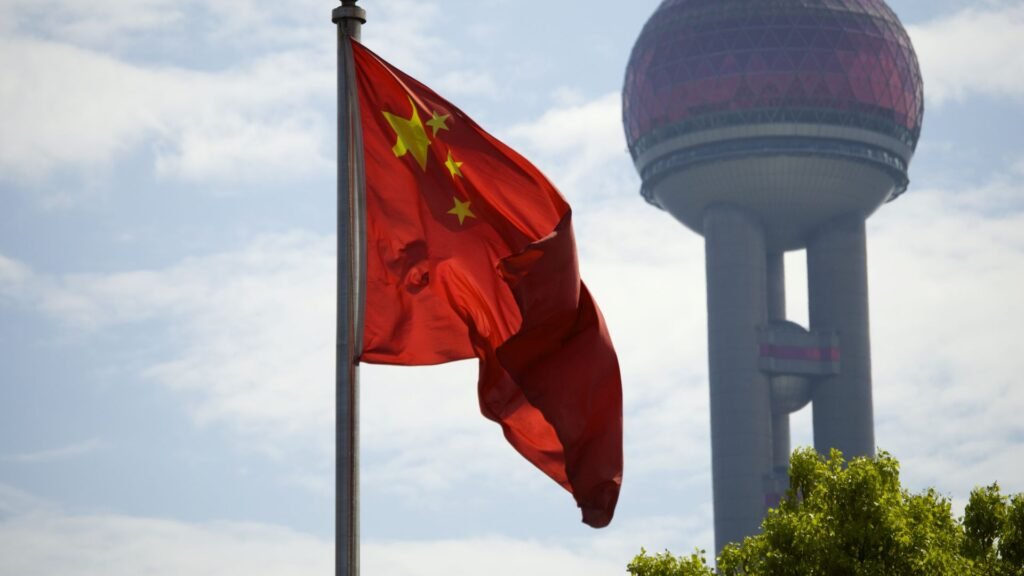
In summary
X (student) visa holders are allowed to do part-time work or internships, with school and government approval
Au pairs work fewer hours than full-time employees and do not have fixed job duties
Pocket money remains well below minimum wage standards
Therefore, you are not considered an illegal worker as long as you stay within these boundaries
💡 Final Tips
- Receive proper visa support and language school enrollment
- Have clear, safe, and legal responsibilities in the host family
- Get full local support to make your experience smooth and compliant


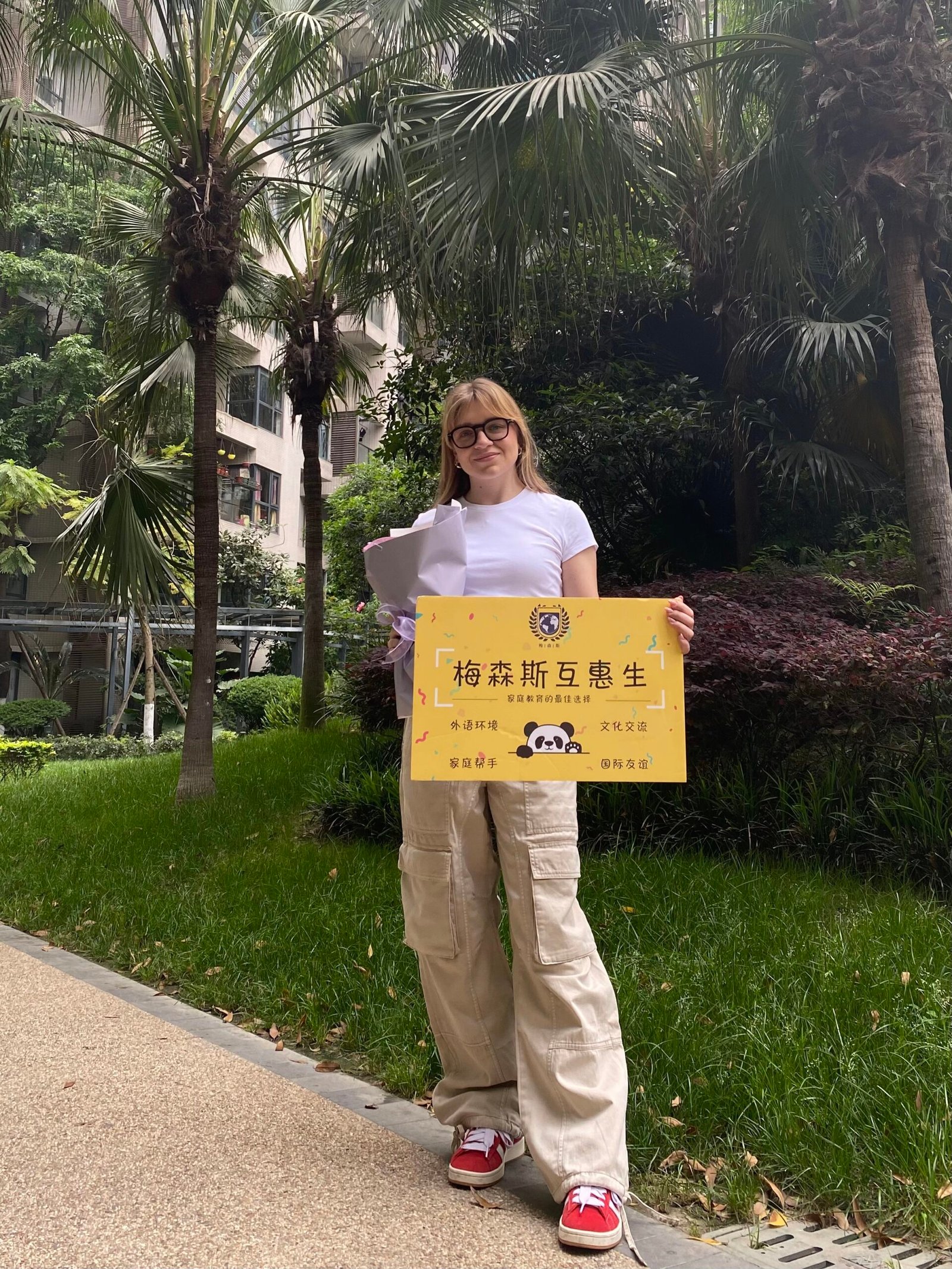



✈️ Ready to Start Your Legal Au Pair Adventure in China?
At Masons Au Pair, we make sure your journey is 100% legal, safe, and supported from A to Z.
Whether you’re just starting your application or getting your visa sorted—we’re here to help.
👉 Apply Now to Become an Au Pair in China
👉 Learn How to Get Your Chinese Visa Here
FAQ
Is being an au pair in China legal in 2025?
Yes, being an au pair in China is legal when done through a recognized cultural exchange program using the appropriate visa—typically the X2 student visa. The program must include Mandarin classes and a clear educational purpose.
What legal requirements must be met to work legally as an au pair in China?
You must be between 18–30 years old, join a certified cultural exchange program, and apply for the correct visa (usually X2). You also need an official invitation letter, a health certificate, and must follow China’s immigration regulations.
Is there an official visa for au pairs in China or are other visas used?
There is no “au pair visa” by name in China, but the most appropriate and legal option is the X2 Student Visa, which allows participation in short-term educational and cultural programs.
What are the legal risks of working as an au pair in China without the right visa?
Working as an au pair in China without a valid visa or through an unregistered program may lead to legal consequences like fines, visa cancellation, deportation, or even a travel ban.
Could working as an au pair in China lead to legal issues without proper visas?
Yes. Without the correct visa (e.g., X2), authorities may consider your stay illegal, even if you’re part of a host family. Always apply through a registered agency and follow all visa requirements.
What makes an au pair program legal in China?
A legal au pair program must be structured around cultural exchange, include Mandarin lessons, and be non-remunerative. It must also provide an official invitation letter and guide you through the legal visa process.
How do visa regulations differ between student visas and work visas for au pairs in China?
Student visas like the X2 are designed for short-term education and cultural exchange. Employment visas (like Z visas) are for paid, full-time jobs—not suitable for au pair activities. Using a work visa for an au pair program is not recommended.
What are the risks involved if I work as an au pair in China without a specific visa?
Without a specific visa, you risk violating Chinese immigration law. This can affect future visa applications, your stay in China, and may result in legal actions.
How can I ensure my au pair experience in China stays 100% legal?
Choose a registered agency like Masons Au Pair, use the correct visa (X2), attend required language classes, and follow all steps in the visa application process. Our team supports you at every stage to ensure compliance.
